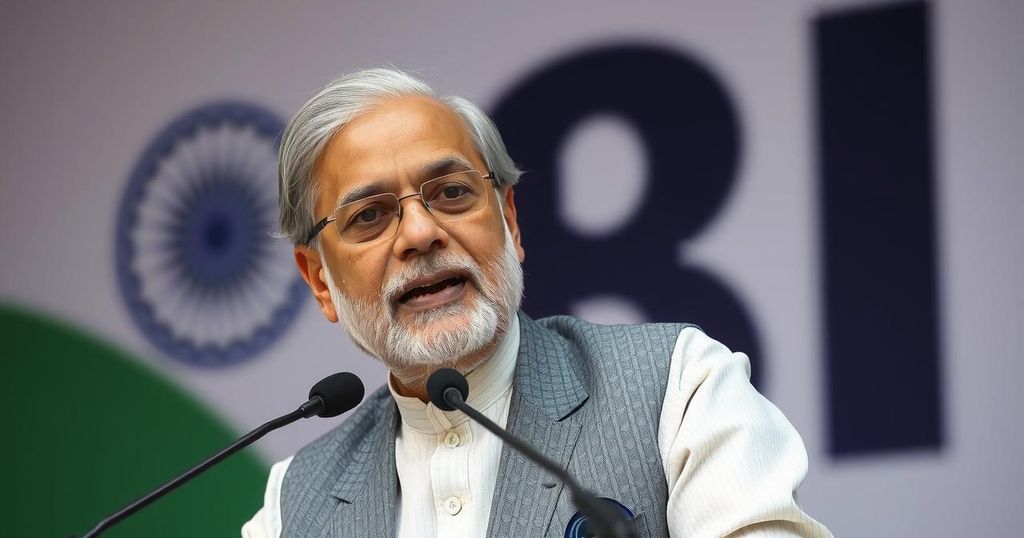Manmohan Singh, a prominent Prime Minister of India, rejuvenated the nation’s economy during the 1991 reforms by shifting from a protectionist trade policy to an export-driven growth model. His academic work significantly influenced his approach, leading to major policy changes that increased foreign reserves and lifted millions out of poverty, reflecting a commitment to both economic advancement and social welfare.
Manmohan Singh, the Prime Minister known for his strategic vision for India’s economic growth, played a crucial role in transforming India’s economy during the 1991 reforms. His insightful academic work, particularly his DPhil thesis “India’s Export Trends and Prospects for Self-Sustained Growth,” analyzed India’s trade policies and underscored the need for generating export potential outside the restrictive framework of self-sufficiency.
Upon becoming the Finance Minister in 1991, Singh reversed India’s prior inward-looking trade practices by initiating liberalization measures that included the devaluation of the rupee. This pivotal decision, aimed at making Indian exports more competitive, led to a substantial increase in foreign reserves, which grew from a precarious two weeks’ worth of imports in 1991 to $25 billion within four years. Singh’s policies were underpinned by his academic insights, advocating for a transition from import-substitution industrialization towards a robust export-promotion strategy, paralleling practices observed in successful East Asian economies.
Furthermore, Singh’s commitment to social equity during his tenure as Prime Minister demonstrated a dual focus on economic advancement and social welfare, resulting in the upliftment of approximately 271 million individuals from poverty between 2005 and 2014. Such policies resonated with the principles articulated in his earlier academic works and reflected a long-term vision for sustainable growth and poverty alleviation in India.
Singh’s impact on India’s economic landscape cannot be understated; his blend of scholarly insights and practical reforms not only salvaged a collapsing economy but also positioned India as a burgeoning economic power in the global arena.
The economic landscape of India in the early 1990s was precarious, marked by a looming bankruptcy and severe trade imbalances. Acknowledging the need for an overhaul, Manmohan Singh’s initiatives aimed to pivot India’s economic policies from a focus on protectionism to an open-market approach. His extensive academic background and work with international economists shaped his vision, allowing him to implement policies that prioritized exports and liberalization during his tenure as Finance Minister and later as Prime Minister.
In conclusion, Manmohan Singh’s tenure as Prime Minister and Finance Minister is characterized by his progressive economic strategies that facilitated India’s ascendance in the global economy. His academic foundation provided the framework for his policies that emphasized the critical importance of exports and economic liberalization while ensuring social safety nets for vulnerable populations. Singh’s legacy exemplifies how informed leadership can catalyze significant economic transformation.
Original Source: www.hindustantimes.com






